-
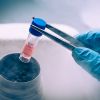 +32 +1
+32 +1Stanford breakthrough uses stem cells to create possible cancer vaccine
An study from has found that mice injected with induced pluripotent stem cells display immune system responses to a variety of cancers. If replicated in humans this could pave the way for a personalized cancer treatment that essentially vaccinates patients against many types of tumors.
-
 +45 +1
+45 +1There's Now "Very Strong Evidence" That Alcohol Can Directly Damage DNA
There is an increasing body of evidence linking alcohol consumption to an increased cancer risk - and now scientists in the UK believe they have found a plausible explanation.
-
 +41 +1
+41 +1Woman, 26, gives birth to baby who spent 24 years as frozen embryo
Officials hope the story will lead to more couples who have embryos in long-term storage to consider donation to help more families.
-
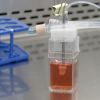 +11 +1
+11 +1Canadian-backed company's biotech breakthrough: tiny, beating hearts made from stem cells
Beating rhythmically and suspended in a jar, tiny heart-like structures made from stem cells are the latest innovation for drug testing — technology that has the potential to save pharmaceutical companies money. They're developed by Canadian-backed biotech firm Novoheart Ltd., which hopes to revolutionize how drugs make it to market.
-
 +17 +1
+17 +1CRISPR modification overcomes major hurdle to human treatments
Scientists modify CRISPR/Cas9 to treat diabetes, kidney disease, and muscular dystrophy in mice, without cutting DNA. In its five years of existence, CRISPR/Cas9 has revolutionized the field of gene editing, allowing researchers to edit DNA like a piece of text. While it’s potential is unquestionable, ethics and safety concerns have prevented CRISPR from being used to treat human diseases.
-
 +19 +1
+19 +1Fully Functioning Artificial Human Heart Muscle Developed
Duke University researchers say they have created an artificial human heart muscle large enough to patch over damage seen in patients who have suffered a heart attack. The advance takes a major step toward the end goal of repairing dead heart muscle in human patients, the team adds.
-
 +9 +1
+9 +1A biotech startup is trying to end poaching by flooding the market with fake rhino horns
Rhinos are among the hardest hit by the illegal wildlife trade. The horns fetch high prices on the black market — up to $60,000 per pound, far more than the price of gold. They're used to make elaborate carvings across East Asia and are also believed to have curative properties in some traditional Eastern medicine practices. Pembient, a two-year-old Seattle-based biotech startup, is trying to solve the rhino poaching crisis with a 3D printer and some clever economics.
-
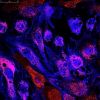 +33 +1
+33 +1Anti-aging stem cell treatment proves successful in early human trials
The results of two human clinical trials into a stem cell therapy that can reverse symptoms of age-associated frailty have been published indicating this landmark treatment is both safe and strikingly effective in tackling key factors in aging.
-
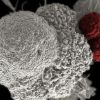 +24 +1
+24 +1FDA approves a game-changing treatment for blood cancer
he Food and Drug Administration on Wednesday approved a promising new treatment for a particularly deadly form of cancer, bringing hope to desperate patients while rekindling a global conversation about the escalating cost of new therapies. The treatment, made by Gilead Sciences, is made by extracting patients’ white blood cells and re-engineering them to home in on tumors. Called a CAR-T, the one-time treatment has shown unprecedented results for patients with dire diagnoses.
-
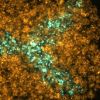 +18 +1
+18 +1Scientists Have Developed a New Method to 3D-Print Living Tissue
The technique could eliminate one of the biggest problems in bioprinting.
-
 +19 +1
+19 +1Sunscreen made from DNA would last forever
A DNA-based sunscreen that not only stops harmful ultraviolet (UV) light, but also becomes more protective the longer you expose it to UV rays? That’s the dazzling premise behind a recent study published in the journal Science Reports. While sunscreen isn’t the only form of sun protection (there’s always protective clothing and floppy hats), the reality is that most of us just skip it.
-
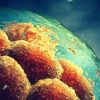 +28 +1
+28 +1World-First Trials Have Been Launched to Treat Parkinson's And Blindness With Embryonic Stem Cells
In a world first, surgeons in the Chinese city of Zhengzhou are planning to inject stem cells derived from human embryos into the brains of patients with Parkinson's disease with the aim of treating their debilitating symptoms.
-
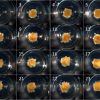 +33 +1
+33 +1We’re Getting Closer to Mass Production of Bones, Organs, and Implants
The hip bone’s connected to the thigh bone, and they’ll both be made by 3D printers.
-
 +24 +1
+24 +1A $12 billion startup you've probably never heard wants to cure baldness and smooth out your wrinkles
Samumed is a $12 billion private biotech startup you've probably never heard of. The San Diego-based company has attracted $300 million in funding and a heady valuation thanks to a pipeline of what could be revolutionary treatments to regenerate hair, skin, bones, and joints. It offers the promise of reversing conditions related to aging by regrowing hair on balding heads, smoothing out wrinkles, and regenerating cartilage to worn-down joints in people with osteoarthritis.
-
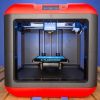 +25 +1
+25 +13-D Organ Printing Breakthrough Could Help Save 175,000 Lives a Year Worldwide
The promise of 3-D printing organs has been around almost for as long as we’ve had 3-D printers. Now, scientists with the University of California – San Diego have made a significant breakthrough to help make it happen. Part of the problem with building a 3-D organ is mimicking the complex blood vessel structure both within the organ, and surrounding it which connects it with the rest of the body’s cardiovascular system. Earlier this year, the Chen Lab for BioNanomaterials succeeded in putting together a vascular system integrated within specimen tissue.
-
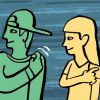 +19 +1
+19 +1Brain Hardwired to Respond to Others’ Itching: Mouse Study
According to researchers, socially contagious itching may be hard wired in the brain.
-
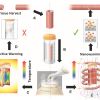 +25 +1
+25 +1Scientists Have Found a Way to Rapidly Thaw Cryopreserved Tissue Without Damage
Researchers have developed a technique that allows them to rapidly thaw cryopreserved human and pig samples without damaging the tissue - a development that could help get rid of organ transplant waiting lists.
-
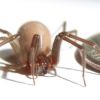 +27 +1
+27 +1Deadly spider’s spinning technique could inspire tougher materials
One of the most feared and venomous arachnids in the world, the American brown recluse spider has long been known for its signature necro-toxic venom, as well as its unusual silk. Now, a new Oxford University, collaborative study offers an explanation for how the spider is able to make its silk so strong.
-
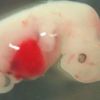 +12 +1
+12 +1The First Human-Pig Hybrid Embryo Has Been Created in the Lab
For the first time, researchers have successfully grown human cells inside early-stage pig embryos in the lab, creating pig-human hybrids, which the researchers describe as interspecies chimeras.
-
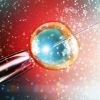 +5 +1
+5 +1Fertility company Ovascience is struggling to survive
A pioneering biotech scales back plans to rejuvenate women’s eggs for IVF. By Karen Weintraub. (Dec. 29, 2016)
Submit a link
Start a discussion




















